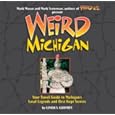Note: the following post was written by the very talented Skyla Dawn Cameron and originally appeared on The Mundania Press Blog. Ms. Cameron has written several novels and is the senior editor at Mundania Press, LLC. Whenever I send out a batch of rejection letters, I inevitably get a "Why?" response back from at least one author.
I completely understand why. Authors put a lot into their work. They wait and wait and wait for a response. And then it comes...and it's a mere form letter.
We all (well, probably not all, but many of us) want to improve our writing. Feedback is wonderful. So why did this editor not tell you what's wrong with your book? It couldn't take more than a few minutes, right?
Here is the reality:
1. You're not the only author in slush. There are, literally, hundreds of novels being evaluated. I *don't* have time to give everyone a detailed rejection letter.
2. Rejection letters aren't sent immediately after a book has been rejected. For Mundania, readers turn in their slush decisions at different times.* I wait a week or so and send off ten to twenty letters at a time. This means that I don't immediately remember the reasons why the book was rejected, and I don't have the time to look it up for every letter.
3. Sometimes (a lot of the time?) a book really, truly is bad. If I told the author exactly what the editorial panel thought of the book...it would not go over well, and with good reason. I don't want to be cruel with anyone, therefore a form letter rejection is the kindest thing I often can give.
4. Feedback used to be given in the past (when the company was smaller), and nine times out of ten, authors sent back angry emails about how the editor was stupid and didn't know anything. That really discourage the practice.
It's *not* a vast conspiracy. I know a lot of people like to think this...the book is actually good, but the evil editors are trying to keep people down by being the gateway to publication. Um, no. But publishers act as a filter, and that's a good thing. If a book is rejected, it's not because we're trying to keep new authors out--often it's because either the book just isn't good, it doesn't fit with the catalogue, or it's good but just not good enough. But that's a whole other rant...
All this being said, I do, occasionally, send back a bit of feedback. Sometimes we want to see the book rewritten/tweaked a bit. Other times we just didn't feel the genre fits, but would love to see future works. If you get that kind of feedback from an editor (not necessarily me, but anyone), please try not to snark back. A personalized rejection letter is gold in this business. It's something to be really proud of.
Finally, if you ever, ever feel compelled to write back to an editor who rejected your work, *please* do nothing but thank them politely. Burning bridges = future queryfail, kids.
(I'm bringing this up because my readers are whittling through September/October slush right now and I'll be sending out the final letters *hopefully* by the end of this month. Everyone will be notified with either a rejection letter, or a full read notice.)
*If you're wondering why I don't send rejections immediately, it's basically because slush isn't my only responsibility, and therefore isn't my priority. Dealing with already contracted authors/books is. Another harsh reality I've mentioned before.










